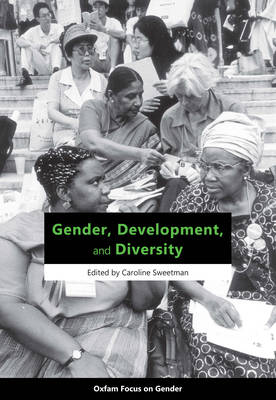
- Afhalen na 1 uur in een winkel met voorraad
- Gratis thuislevering in België vanaf € 30
- Ruim aanbod met 7 miljoen producten
- Afhalen na 1 uur in een winkel met voorraad
- Gratis thuislevering in België vanaf € 30
- Ruim aanbod met 7 miljoen producten
Zoeken
€ 21,95
+ 43 punten
Omschrijving
Each one of us lives life as a carrier of multiple identities - including gender, race, class and age. The sum of these identities determines our opportunities in life, and empowers or disempowers us, depending on our context. This collection of articles focuses on the implications that this has for development goals of poverty alleviation and human rights. In particular, critiques from Southern women challenge development organisations for their inadequate and inappropriate policy and practice. Development programmes have addressed gender inequality as a key concern, but most organisations have yet to understand how other aspects of difference intersect with gender to unite and divide groups of women from each other. Improving development policy and practice means understanding inequality in its complexity, and developing ways of working which acknowledge difference, rather than suppress it. It means practising as we preach, by transforming our own organisational cultures. This entails confronting issues of power and inequality, and challenging racism, sexism and other forms of discrimination. Contributors to this issue include Ranjani K Murthy, Everjoice Win, and Dorine Plantenga. Case studies come from India, Zimbabwe, Latin America and the UK.
Specificaties
Betrokkenen
- Auteur(s):
- Uitgeverij:
Inhoud
- Aantal bladzijden:
- 90
- Taal:
- Engels
- Reeks:
Eigenschappen
- Productcode (EAN):
- 9780855985318
- Verschijningsdatum:
- 15/12/2004
- Uitvoering:
- Paperback
- Formaat:
- Trade paperback (VS)
- Afmetingen:
- 190 mm x 246 mm
- Gewicht:
- 240 g

Alleen bij Standaard Boekhandel
+ 43 punten op je klantenkaart van Standaard Boekhandel
Beoordelingen
We publiceren alleen reviews die voldoen aan de voorwaarden voor reviews. Bekijk onze voorwaarden voor reviews.











